
Amid the global push for carbon neutrality, the Southeast Asian country, Philippines is focusing on biomass energy.With abundant agricultural resources and growing energy demand, the Philippine biomass pellet market presents significant investment potential.
As the Philippine government actively promotes energy transition, the biomass pellet industry is transforming from an "agricultural byproduct" to a "strategic resource." As one of Southeast Asia's most promising biomass energy markets, the Philippines is attracting significant investor attention.
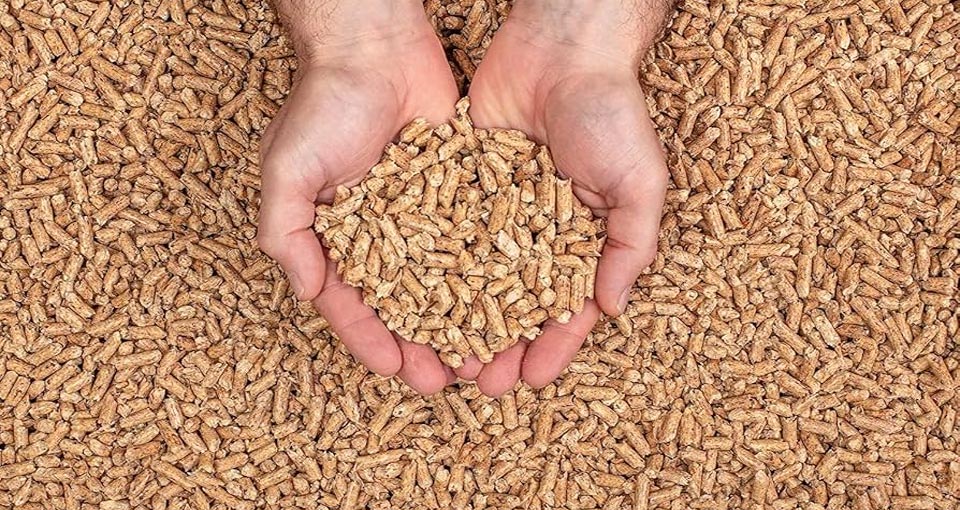
1. Raw Material Supply: Significant Resource Advantages and Huge Development Potential
The Philippines boasts abundant biomass raw material resources, providing a solid foundation for the development of the biomass pellet industry. As a country rich in agricultural resources, the Philippines generates significant quantities of biomass raw materials annually, including rice husks, sugarcane bagasse, wood processing waste, and empty palm fruit bunches.
These long-overlooked "waste materials" have now become valuable energy resources. Wood residues stand out as a major source due to their abundance and plentiful supply. The Philippines' vast forest resources and agricultural land provide a solid foundation for biomass energy development.
The stable supply of raw materials and their significant cost advantages are evident. Biomass raw materials are readily available throughout the Philippines, particularly in areas of concentrated agricultural production, significantly reducing the costs of collecting and transporting them. Agricultural residues provide a sustainable means of fuel production, not only addressing waste disposal issues but also creating an additional source of income for farmers.
2. Policy Support: Strong Backing from National Strategies
The Philippine government attaches great importance to and provides policy support for the development of renewable energy.
The Philippine government has set ambitious targets for expanding renewable energy production capacity. As a key component of renewable energy, biomass energy is expected to benefit from a range of policy supports, including tariff reductions and exemptions on equipment imports, as well as tax incentives.
International cooperation has further accelerated the development of the industry. The Philippine government has partnered with numerous international organizations and companies to promote the implementation of biomass energy projects.
These collaborations have brought capital, technology, and management expertise to the Philippines, significantly reducing investment risks. The Philippine national airline has begun using sustainable aviation fuel (SAF), marking significant progress in the practical application of biomass energy.
3. Market Demand: Driven by the Reality of Energy Gaps
The Philippines faces growing energy demand. This growth is putting pressure on the country's existing energy infrastructure.
Power shortages are particularly prominent. While the Philippines possesses certain traditional energy resources, its energy structure, which primarily relies on imported fossil fuels, has limitations.
Dependence on fossil fuels has raised concerns about energy security and price stability. This has prompted the government to explore alternative sources of renewable energy, such as solar energy and biomass energy.
The export market potential is also significant. With growing demand for renewable energy in neighboring countries such as Japan and South Korea, the Philippine biomass pellet export market holds great promise.
4. Application Areas: Diversified Market Space
Biomass pellets have a wide range of applications in the Philippines, covering a wide range of sectors, from industrial to residential.
Industrial applications are the primary scenario. Biomass pellet fuel is widely used in industrial boilers, replacing traditional coal and effectively reducing pollution emissions. Many industrial enterprises require a stable heat source, and biomass pellets offer a clean alternative to traditional fossil fuels, reducing energy costs and environmental pollution.
Power generation is another important application area. Biomass pellet fuel is suitable for cogeneration projects, improving energy efficiency. The Philippines is actively exploring biomass power generation projects to reduce its dependence on imported fossil fuels.
The residential market has enormous potential. In rural areas of the Philippines, most households still rely on traditional firewood for fuel, and biomass pellet fuel can be a cleaner and more efficient alternative.
5. Investment Opportunities and Risk Management
While the Philippine biomass pellet market holds broad prospects, it also presents certain investment risks, requiring investors to implement appropriate management measures.
The risk of raw material supply stability warrants attention. Investors should establish a diversified raw material procurement system and develop storage-resistant pretreatment technologies to ensure a stable raw material supply.
The risk of policy stability should also not be ignored. Investors should closely monitor changes in relevant Philippine policies and regulations, anticipate policy adjustments in advance, and flexibly adjust investment strategies.
Technical bottlenecks must be addressed. Optimizing moisture-proof packaging and logistics solutions to enhance the suitability of pellet fuel in humid environments is key to ensuring product quality.
Summary
The Philippine biomass pellet market is poised for explosive growth: abundant agricultural waste resources, increasing policy support, and growing export demand—all these factors are creating a once-in-a-decade investment window.
Investors entering the market now will not only benefit from policy dividends such as tariff reductions and tax incentives for equipment imports, but also secure a strategic position in Southeast Asia's energy transition. The Philippine government's ongoing Sustainable Aviation Fuel (SAF) development program ensures long-term policy support.
Investing in the Philippine biomass pellet market is not only a wise decision seeking financial returns, but also a historic opportunity to participate in the Philippines' energy transition, environmental protection, and sustainable development. This new ocean of green energy awaits visionary investors.
As professional manufacturer of biomass pellet production line, we have abundant experience, can customize suitable biomass pellet plant according to customer's different raw material, and capacity requirement.
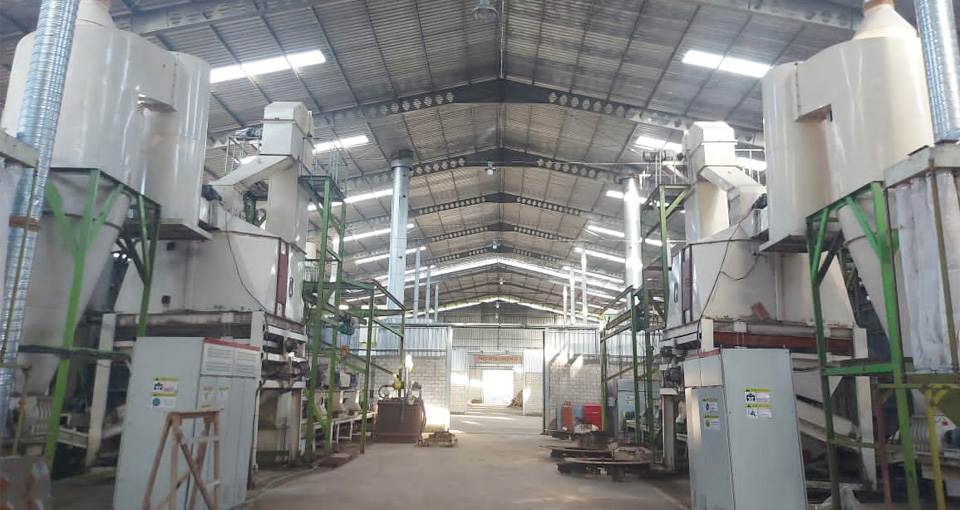 20t/h Wood Pellet Production Line in Indonesia
20t/h Wood Pellet Production Line in Indonesia
Country: Indonesia
Capacity: 20t/h
Raw Material: subtropical trees
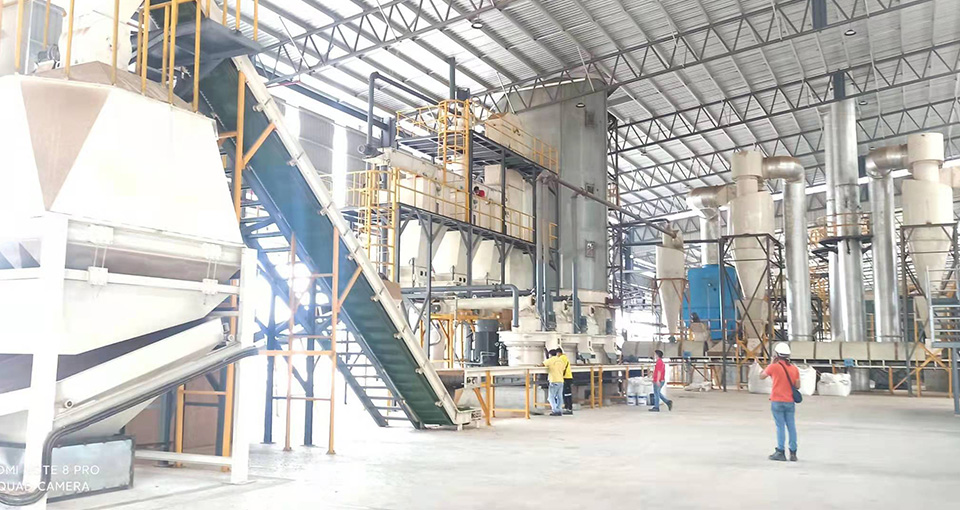 10t/h Wood Pellet Production Line in Malaysia
10t/h Wood Pellet Production Line in Malaysia
Country: Malaysia
Capacity: 10t/h
Raw Material: wood log (acacia wood, eucalyptus wood)
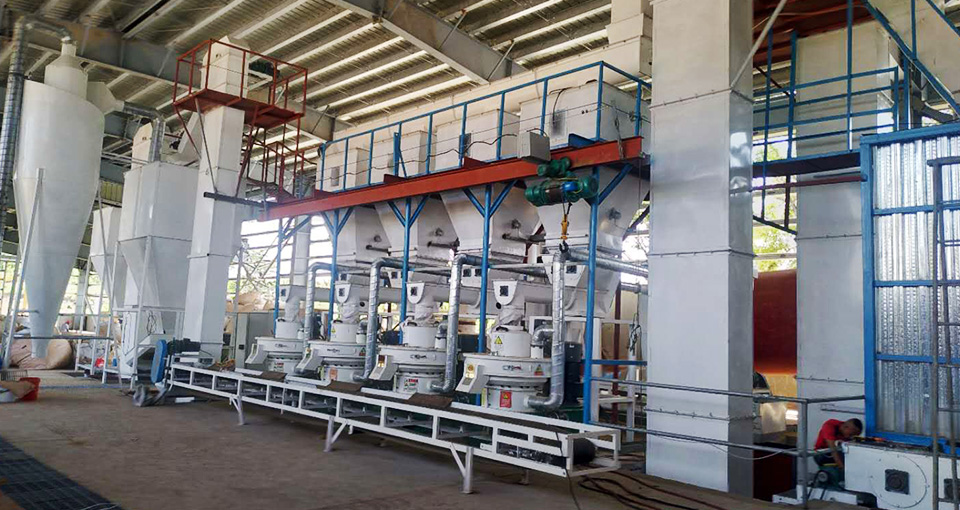 10t/h Wood Pellet Production Line in Philippines
10t/h Wood Pellet Production Line in Philippines
Country: Philippines
Capacity: 10t/h
Raw Material: wood log
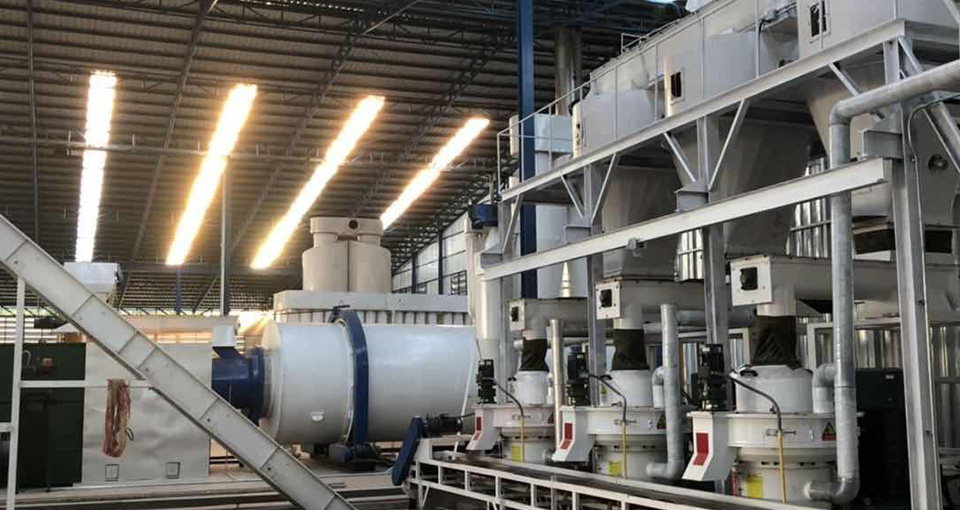 6t/h Wood Pellet Production Line in Thailand
6t/h Wood Pellet Production Line in Thailand
Country: Thailand
Capacity: 6t/h
Raw Material: wood log